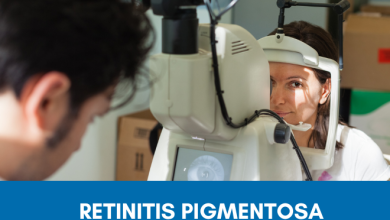Night Blindness: Causes, Effects and Helpful Supplements

Living in a world that thrives after sundown can pose significant challenges for individuals affected by night blindness. When the lights dim, the outlines become blurry, and navigating through the night becomes a daunting task. What causes this condition, how does it impact daily life, and what can be done about it?
The Science Behind Night Blindness
Diving into the science of night blindness, or Nyctalopia as it’s known in the medical world, takes us on a fascinating journey to the retina, the back part of our eye. Here, you’ll find two types of cells – the rods and cones. The roles these cells play are as unique as their names. Cone cells take care of your color and day vision, while the humble rod cells are your secret weapons for seeing in the dark and capturing peripheral vision. The trouble starts when these rods take a hit.
Whether it’s damage, disease, or a lack of certain nutrients, when your rod cells aren’t functioning at their best, night blindness can sneak into your life. It’s not a standalone disease but a sign that something else may be going on in the background, primarily concerning the retina. So, as the sun dips, and the shadows grow longer, if you find the outlines blurring, it might be time to give your rod cells some attention.
Main Causes of Night Blindness
Just like there isn’t one single shade of darkness, there isn’t a single cause of night blindness either. Several elements can paint your vision into a confusing blur as the daylight fades. It might be an inherited retinal disorder pulling the strings from behind the scenes. Take, for example, Natural Treatment for Retinitis Pigmentosa, a notorious puppet master known for progressively causing rod cells to lose their power, their sight, their light. Cataracts are another culprit.
These clouds formed on the clear lens of your eyes act as unwanted barriers, blocking or distorting the light that tries to make its way to your retina. The third on our list of possible causes for night blindness is a deficiency of Vitamin A. This vital nutrient holds the steering wheel when it comes to the smooth sailing of our rod cells. If Vitamin A goes missing in action, the rod cells could end up losing their way, making your vision murky in the dim light. It’s a tangled web of factors, each one capable of casting its shadow on your night vision.
The Impact of Night Blindness on Everyday Life
Stepping into the shoes of those grappling with night blindness, one quickly realizes the magnitude of its impact on daily living. Imagine driving home after a late dinner, the headlights of oncoming cars causing more of a blur than clarity. Or trying to navigate the dim corridors of your home during a nighttime bathroom run. Each of these tasks, usually taken for granted, becomes a hurdle. And that’s just the tip of the iceberg. With the fall of darkness, social events can become stress-inducing. Will the restaurant have enough light? Can the house party lighting be controlled? Questions like these can cause anxiety and lead to self-isolation. It’s not uncommon for individuals with night blindness to gradually retreat from after-dark activities, creating a sense of a shrinking world. This scenario underscores the enormity of the situation and why understanding and addressing night blindness should not be taken lightly.
Dietary Supplements to Manage Night Blindness
While there isn’t a cure-all for inherited night blindness, don’t lose hope. For those whose nocturnal vision trouble stems from a deficiency in Vitamin A, relief may lie in some dietary tweaks and supplemental aid. Consider adding Vitamin A powerhouses to your plate. Think bright orange carrots, succulent sweet potatoes, or a hearty helping of spinach. These foods come packed with this crucial nutrient that can help your rod cells function better in low-light situations.
But your eye health doesn’t have to rely solely on Vitamin A. Meet Omega-3 fatty acids, lutein, and zeaxanthin – other vital nutrients that can help keep your eyes in top form. Noted for their potential to promote The Best Eye Health Supplements, these supplements might be the allies you need in your fight against the night.
But remember, when it comes to supplements, one size doesn’t fit all. Everyone’s nutritional needs and health situations are unique, which is why it’s crucial to get professional advice. Before starting any supplement routine, make sure you consult with a healthcare professional. They can guide you on what supplements might benefit your specific situation and how best to incorporate them into your diet.
In a world where our vision is our guiding light, navigating the night shouldn’t have to be a struggle. By keeping a check on your nutritional intake and exploring the world of supplements, you might just find your way to clearer, brighter nights.
Emphasizing the Importance of Regular Eye Checkups
Stepping into the optometrist’s office might seem like a chore, but it’s one that could hold the keys to maintaining your night vision. Frequent eye exams are the unsung heroes in the fight against night blindness. They can uncover subtle signs of conditions like cataracts or Vitamin A deficiency, which could be causing your vision to dim as the day does.
Spotting these potential vision thieves early gives you the advantage, allowing you to start treatment or adapt strategies to manage the condition. If your nighttime vision is already posing challenges, the eye specialist’s expertise can help decipher the mystery behind the blurred outlines. They can help pinpoint what’s pulling the strings behind the scenes, whether it’s Herbal Treatment for Retinitis Pigmentosa, a cataract clouding your sight, or a simple lack of Vitamin A.
While the world of supplements and nutritional changes can provide some relief, they are not stand-alone solutions. Regular eye exams are critical allies, providing vital insights that can be used to guide your supplement routine or suggest other treatment avenues.
Don’t underestimate the power of these check-ups in your journey towards clearer, brighter nights. Make them part of your routine, not an afterthought. Remember, understanding what’s causing your night blindness is the first step in navigating this challenge. And that understanding can often start in the optometrist’s chair. Let the lights of the examination room be the stepping stones to better night vision.
Final Thoughts: Living with Night Blindness
Facing the challenges that night blindness brings can feel like stepping into uncharted territory. However, knowledge is your compass, and the right approach is your roadmap. Keeping a close relationship with your Natural Cure for Eye Infection care specialist can open up avenues for earlier detection and management of the condition. A balanced diet rich in Vitamins A and other essential nutrients can aid your rod cells’ function, providing you with the tools to combat the dark. And while nutritional supplements can offer significant benefits, they should be personalized to your health situation and undertaken only after consultation with a healthcare professional.
Living with night blindness may mean adapting to new routines and a different way of seeing the world. But remember, every challenge is surmountable when faced with understanding, support, and the right resources. So let’s welcome the night with open eyes and embrace the journey towards clearer, brighter visions.




